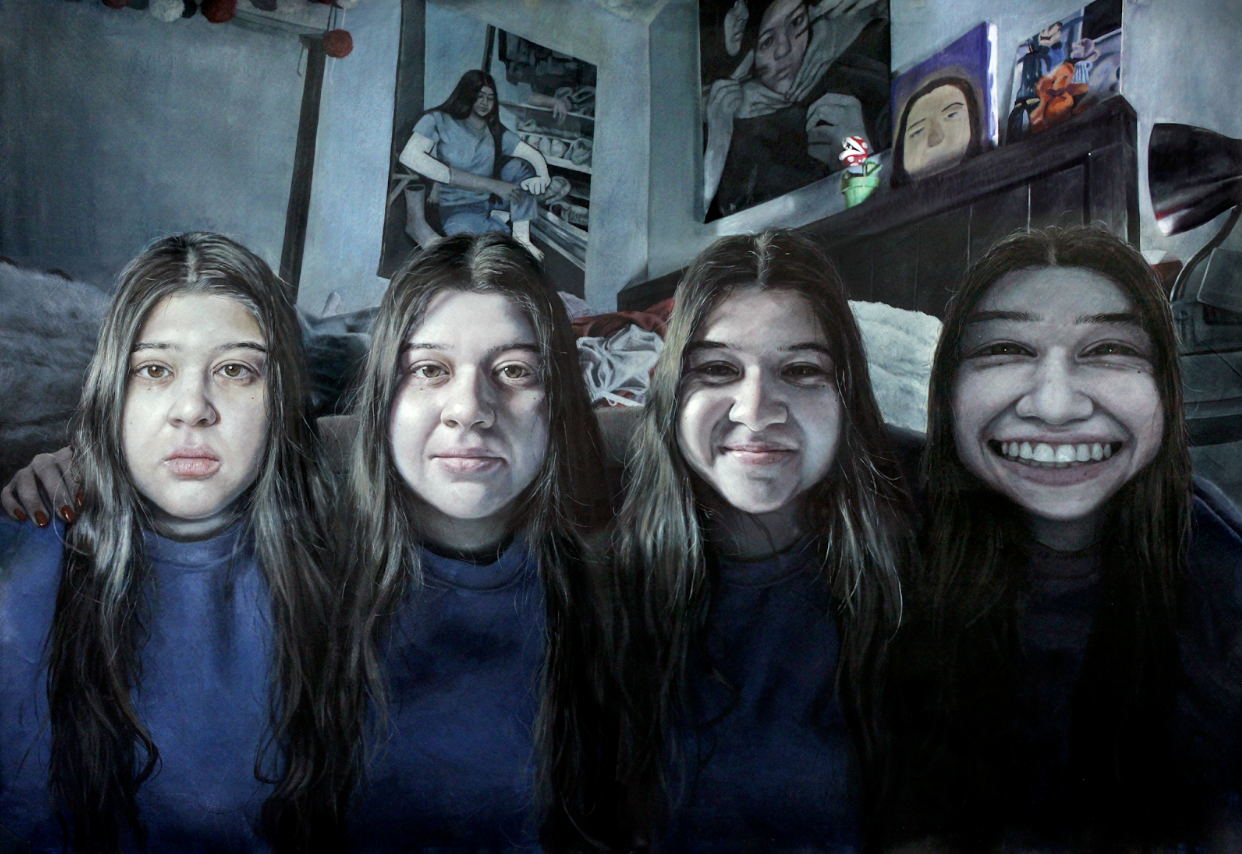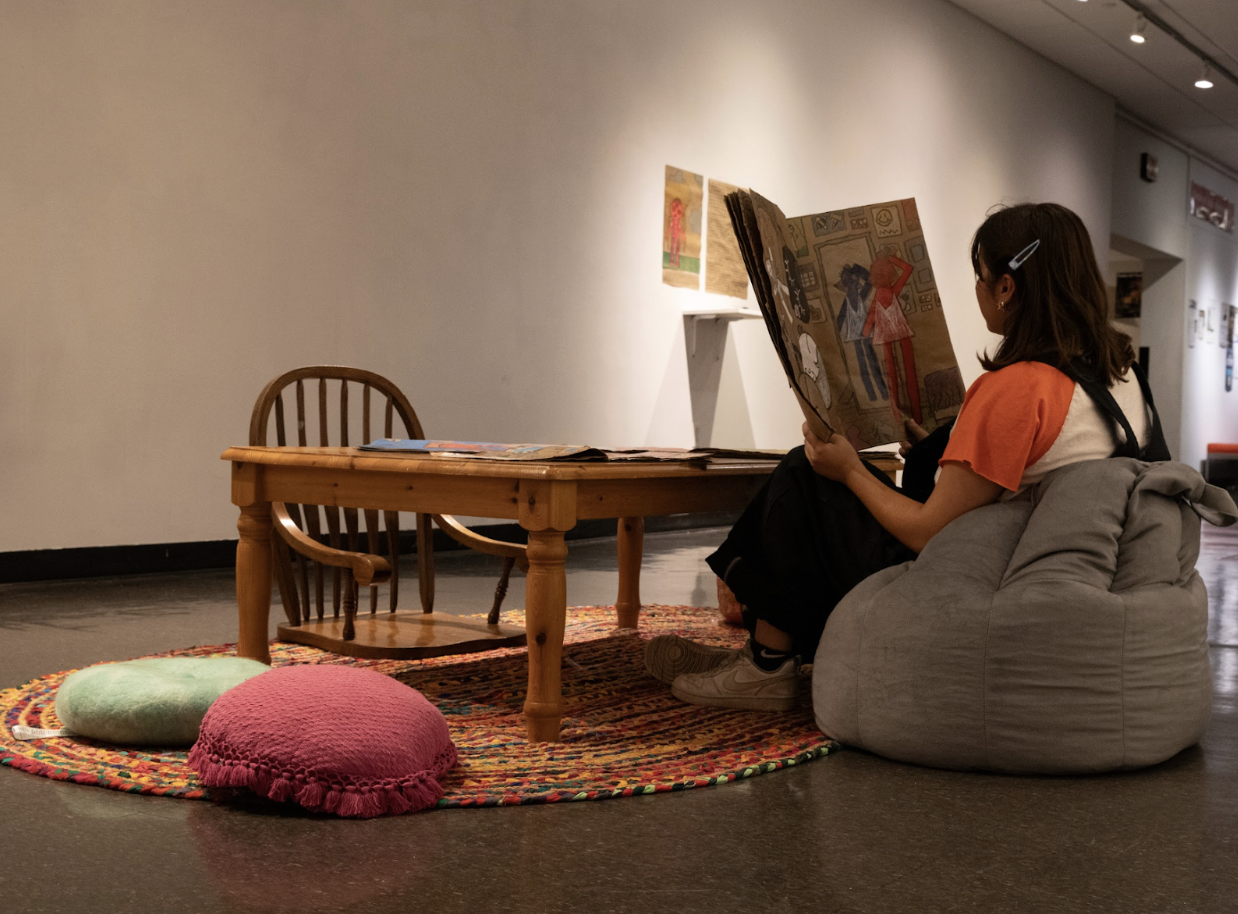TikTok-star-turned-RISD student, Camila Salinas, discusses the evolution of her self-portraits through the pandemic, internet stardom, and art school. She reflects on authenticity, the impact she hopes her work has on viewers, and the legacy she’s beginning to build as a young artist.
Slotted in the intersection between New York’s 5th Avenue and East 86th is the exteriorly modest enclave of the Neue Galerie, a Beaux-Arts mecca for fervent museum-goers. Upon reaching the front of the everpresent queue, I was instantly stunned by the grandeur of the building’s interior. Welcoming visitors is a dimly-lit, three-storey space adorned with German and Austrian art—a treasure trove of prodigious artistry that left me foolish with covetousness. Contrasting the vastness of the neighbouring Guggenheim and MET, the Neue Galerie flourishes with its boutique museum model, amplifying the air of exclusivity and class that permeates the space. Despite the mass of classical masterpieces exhibited, the curation is attentive and unimposing, affording each artist with their own space to be celebrated.
Ascending the stairs to the main level of the museum, visitors become immersed in the rich tapestry of German-Austrian extravaganza. Permanently on display is Gustav Klimt’s Portrait of Adele Bloch-Bauer I (1907), which in itself is worth visiting the museum to experience. Her gaze is imminently enigmatic and seductive, softly luring viewers in to immerse themselves in the golden richness and the mosaic intricacies. As a whole, the painting invites admiration but rejects excessive desire, appearing more astonishing in effect when juxtaposed against the regal simplicity of the museum’s walls. Klimt’s portraits of women are spectacular for their resonating quality: it is easy to find yourself mimicking the elusive pensiveness of Adele Bloch-Bauer or the rosy tranquillity of Ria Munk. Klimt’s mastery in rendering uncontrived, demure femininity establishes a high standard for beauty, one that is repeatedly attested to amongst his collection on display.

Shifting our pictorial gaze away from Klimt’s works of Art Nouveau, we are presented with paintings by Egon Schiele, Oskar Kokoschka, and Richard Gerstl, inviting an introspection of Viennese Expressionism. The brutality of Schiele’s works has always been one that engrossed me. Yet the museum divulges another, often overseen, element of his artistry with the display of Danaë (1909), which paints a graceful nude girl, adorned with rosy cheeks and what emerges is a peaceful illustration of innocence and shy sensuality. When displayed beside Klimt’s paintings, his influence on Schiele becomes particularly discernible.

Also on display are intricately designed furniture and domestic objects by Mies van der Rohe and Wilhelm Wagenfeld, encompassing a spectacle of vases, jewellery, lamps, or perhaps best summarised as an eden of beautiful objects. Attached to the museum is a tucked away souvenir shop and the glamorous Café Sabarsky. As a rendition of Viennese coffeehouses, the café recreates the traditional experience through both enrapturing cabaret and authentic Viennese delicacies, marking the Neue Galerie as the perfect space to sojourn on a chilly Saturday morning.
The museum is an ode to Germany and Austria, and the underrated spectacle of art birthed from the two nations. If you find yourself aimlessly wandering the streets of New York, visit the Neue Galerie and allow yourself to get lost among the intricate display of beauty and splendour.
(Cover Image: Entrance to the Neue Galerie)





